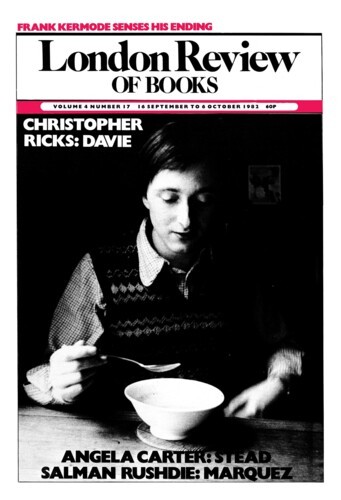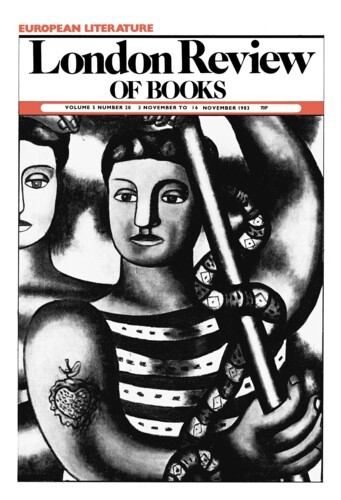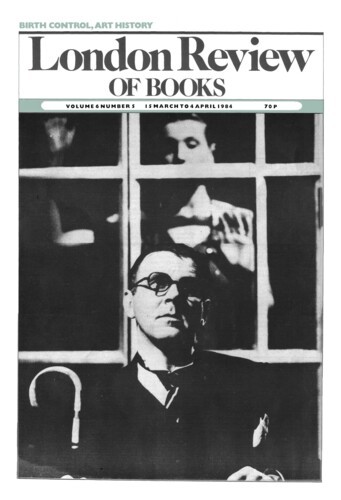Tons of Sums
Michael Mason, 16 September 1982
Most people know that Charles Babbage was a pioneer of the computer. This absorbing, though hagiographical, new life makes very clear how many other things he was as well: pure mathematician, economist, inventor, reformer of scientific institutions, craftsman, even salon host. But Anthony Hyman does not seek to displace the computers from centre-stage in Babbage’s life, and this seems correct. They provide the most sustained theme in his variegated career, and may be seen as a point of convergence for most of the tendencies of his mind. To consider the computers is to consider Babbage. Indeed his story falls under a triple rubric that belongs to computers from Babbage onwards: software, hardware, and applications.





